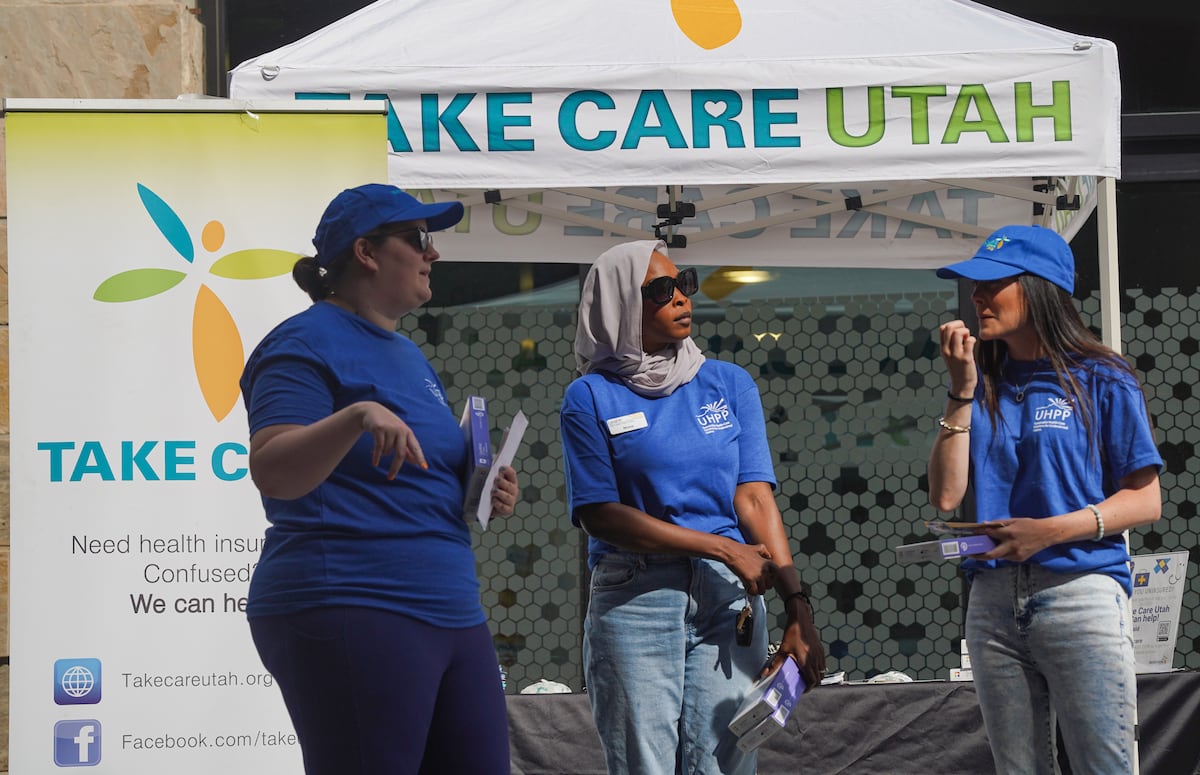(Bethany Baker | The Salt Lake Tribune) Rebecca Barhorst, left, Mona Taha, center, and Ashley Vaughn, staff with Utah Health Policy Project, work the Take Care Utah booth at the Latinx/Hispanic Health and Heritage Festival in downtown Salt Lake City on Saturday, Sept. 9, 2023.
| Sep. 3, 2025, 12:00 p.m.
| Updated: 6:55 p.m.
When I was 17 years old, it seemed like I had gained 30 pounds overnight.
When I continued to bloat, grow abnormal amounts of hair around my chin and jaw, and fall into depression, I felt insecure and hopeless. Because my workouts and diet had remained the same, doctors blamed random food allergies that were causing me to have weight loss resistance. It was not until four years later, after seeing countless OBGYNs and endocrinologists, that I got insight as to what condition I was truly suffering from.
Polycystic ovary syndrome, or PCOS, is a disorder that causes a variety of serious, lifelong health problems. It can cause fertility complications, excessive hair growth on certain parts of your body, and increased risks of diabetes, anxiety, depression and eating disorders. PCOS is severely underdiagnosed. Why? There is inadequate recognition by health care professionals, which can lead to low rates of reporting and delayed diagnosis.
PCOS community members describe health care experiences as dismissive and say there is not enough information to understand the disorder entirely. Rather than relying on patient advocacy, there needs to be an increase in research funding, education, awareness and offering support to validate and properly diagnose.
A drastic increase in awareness and education surrounding this disorder would help women, both locally, nationally and globally, to feel validated and relieved. Some sources indicate that PCOS affects approximately 2 per 1,000 individuals in the United States, while others report that it affects nearly 1 in 5.
This further proves that due to underdiagnoses, women are not fully seen and supported in the health care system. Advocating and educating about PCOS will bring relief to millions of American women alone. Our health care system should not ignore 20% of women.
Hannah Truman, Salt Lake City

